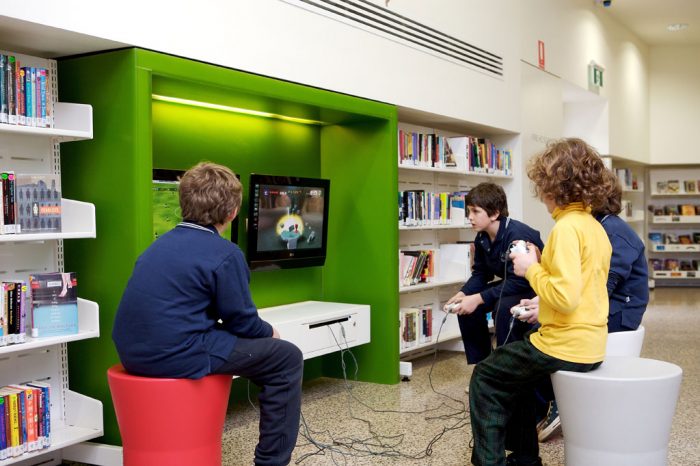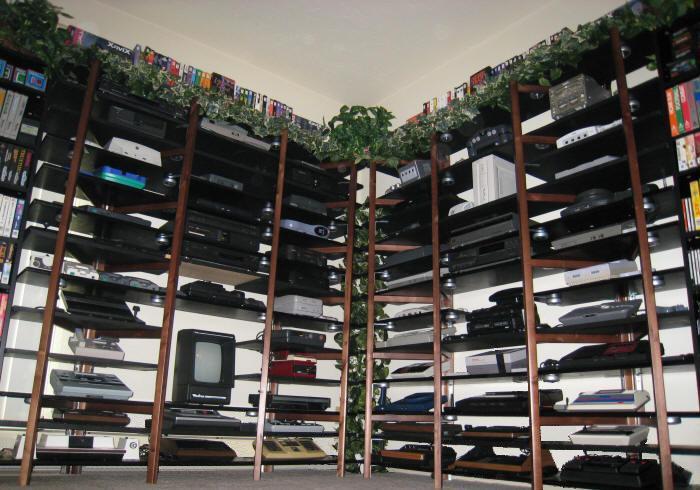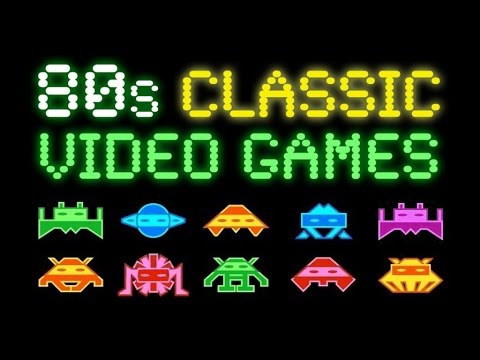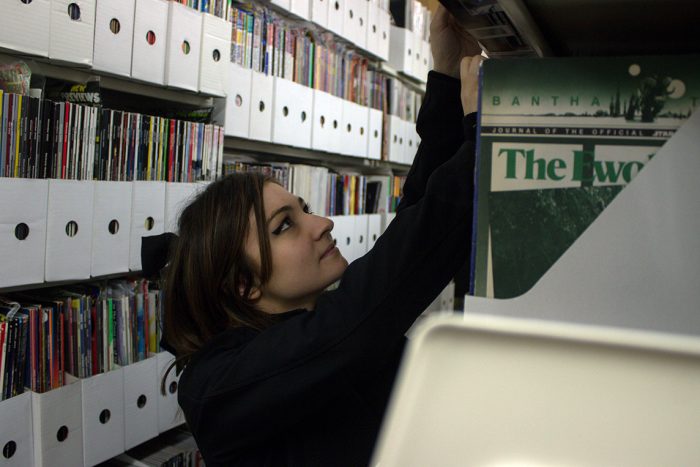
Authors/Editors: Sarah Walters, Sereen Suleiman, Max Gonzalez Burdick
Video games are now common items in both the public and academic library sectors. Video games are being checked in and out of libraries by patrons for leisure, study, and other informational needs. Games from the earliest days to modern day are currently preserved at prestigious institutions such as the Library of Congress. Many other libraries are specifically designed as special libraries, divisions, or databases for the purposes of preserving the rich history of video games. Read below to check out some of these cool places!
The Video Game Console Library
A group of game enthusiasts created the Video Game Console Library (VGCL), which displays an immense collection of nostalgic and antiquated games such as the Atari 2600. Their online database contains information about games dating back to the 1970s, 80s, 90s, and 00s. Furthermore, their website is well-versed in describing the specifications, models, resources and history of the individual gaming consoles. This database is excellent for people interested to know more about particular consoles.
Video games in Academic Libraries
Some academic library departments in prestigious universities have extensive video game collections, and as a result, these librarians require the assistance of students and faculty specializing in video game design programs. Gaming and laboratory spaces at academic libraries support students’ research into technology in addition to education about the latest developments in gaming technology. According to the American Library Association (ALA) blog, “Games in Libraries,” libraries play an important role in providing the communities they serve with updated technological services.
The UC Santa Cruz Library’s Video Game Lab, developed by the Science and Engineering Department, requires faculty to be knowledgeable about its services. At the Game Lab, students can rent games and consoles from the collection, which has over 1,000 retro and modern games in addition to 40 consoles.
A prominent academic library department dedicated to games research is the Games Library at Michigan State University (MSU). Its Rovi Gaming Collection is one of the largest collections of video games worldwide. There are over 17,000 console and PC games dating to the mid-80s, as well as peripherals, collectors’ editions, and advertising content. The Games Library supports students’ research with Game Labs for access to console games. MSU students can look for titles using the library’s online catalog.
The Strong National Museum of Play
The Brian Sutton-Smith Library at the Strong National Museum of Play, named for a scholar of play theory, has a vast collection of 225,000 volumes of scholarly works, trade magazines, fanzines, toy industry catalogs, children’s periodicals, and more, covering the larger games and toys industry. In addition, the library also includes materials specifically focused on video games, like game guides, cheat code books, gaming magazines dating to the ‘60s, and company newsletters and press kits from video game industry pioneers such as Atari and Strategic Simulations. Furthermore, an online library catalog is available for users who are signed up with their email addresses. Digitized and physical trade catalogs, magazines, journals, and other materials can be checked out, with catalog supporting advanced and keyword searching.
Video Game History Foundation’s Research Library
As the expansive and diverse collections at academic and museum libraries demonstrate, the history of video games is not confined to the games and consoles alone. One group has opened a research library featuring materials of historical importance for the video game industry. The nonprofit Video Game History Foundation (VGHF) has created the nation’s first library solely dedicated to the study of video game history. VGHF’s mission statement is to support and foster collaborative research and preservation, and they value inclusion, access, and immediate action. This nonprofit is co-directed by two video game historians. VGHF announced their research library on their projects page from their website in 2019. The library’s collection materials include four decades’ worth of North American video game magazines, like Electronic Gaming Monthly and Atari Age, as well as near-complete sets, along with international and multiple-language magazines, art books, history books, zines, and historical and rare materials. VGHF shares their projects on their social media and blog in order to highlight why video games are important to preserve due to their educational, cultural, and historical value. Just as with movies and television programs, concept art from video games is an important archival material. Video game historians at VGHF argue that a game’s source code has educational value and could be the future of games preservation.
In short, all of these items tell the larger story of the video game industry, while simultaneously providing cultural and historical context to this story of preservation.









2 Comments
Sereen A Suleiman · 5 Apr 2021 at 8:44 AM
Hi Katherine! Thank you for reading our blog, and we’re glad you enjoyed it. Feel free to reach out the rest of the SLA team, as we would love to hear more about what you have to share. Take care.
Sereen Suleiman
SLASC Second Assistant Blogger
Katherine D. Harris · 16 Mar 2021 at 7:28 AM
This is awesome! There’s a group of SJSU faculty who teaching gaming: in English, we have English 108, Gaming & Narrative; in Art there’s ART 108 about Art & Gaming (they design games). There’s also a Music professor who creates, studies, and performs music for games! Finally, there’s a massive student gaming group that’s very avid and active! If there’s anyone interested in the iSchool, we should get everyone together to talk about teaching about gaming.